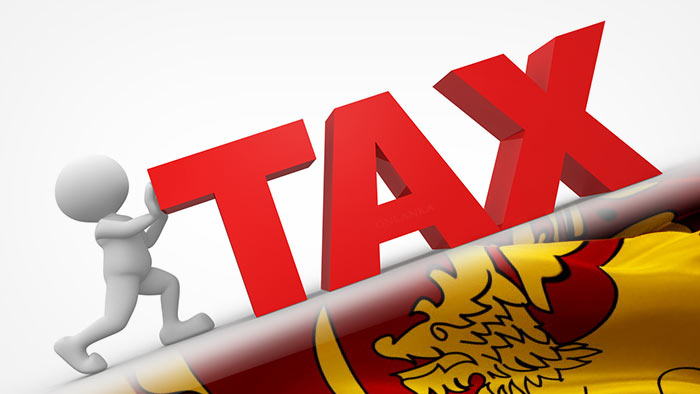Controversial Social Security Contribution levy comes into effect

The controversial Social Security Contribution (SSC) levy came into effect this week with 2.5 percent slapped on turnover on a wider base of businesses with annual taxable turnover exceeding Rs.120 million as the bill was passed in Parliament last week.
The SSC is an indirect tax charged on turnover and thus has a cascading effect where the tax on tax is paid on every step of the sale of a good or service with the final burden being fell squarely on the end consumer, at a much higher scale than what the tax percentage suggests.
According to tax experts, the true tax burden could be in the range of 5 to 7 percent and with the twice-hiked Value Added Tax (VAT) in a matter of three months, the total increase in the indirect taxes on their goods and services could be in the north of 22 percent.
When the SSC was first announced by the then Finance Minister Basil Rajapaksa to raise Rs.140 billion in 2022 to make up for the loss of tax revenue largely due to the tax cuts introduced in 2019, many business and finance leaders baulked at the idea, stating it brought additional complications to their operations.
Instead, they called to either reinstate the National Buildings Tax (NBT) which was rescinded in 2019 December or add it into the VAT.
Joining in Parliament debate last Friday, the Opposition legislator, Dr. Harsha de Silva echoed similar sentiments and said the tax goes against the stated tax policy of the country to make it more progressive and make it more simplified.
The SSC, being an indirect tax, makes the tax policy more regressive as low-income and the poor bear most of the brunt of the tax, he said.
Dr. de Silva went on to ask how one could justify the SSC at a time when food inflation is over 90 percent and food scarcity is expected to become more acute in the coming months. He also questioned how two taxes simplify the tax administration instead of a single tax.
While stating that no developed country has imposed both VAT and a turnover tax, Dr. de Silva opined that it either has to be VAT or the turnover tax, hence urged the government to raise the VAT if they want, without further complicating the system for both the taxpayer as well as the government.
The legislator urged the government to bring a sunset clause if they intend to end the tax after some time.
He raised concerns about how the government could raise the budgeted Rs.140 billion from this tax in 2022 when the tax was enforced after 8 months into the fiscal year.
SSC is imposed on importers, manufacturers, service providers and wholesalers, and retailers.
Citing the slew of taxes that rose in rates as of late, condominium developers have written asking the authorities to exempt them from the tax pertaining to their existing projects.
(Courtesy: Daily Mirror)
Latest Headlines in Sri Lanka
- Anusha Palpita remanded until February 6, 2026 January 23, 2026
- Anusha Palpita arrested by Bribery Commission January 23, 2026
- Johnston Fernando, two sons and others further remanded until January 30, 2026 January 23, 2026
- Paranthan Chemical Factory reconstruction begins after four decades January 23, 2026
- Sri Lanka hospitals affected as GMOA starts 48 hour strike January 23, 2026


